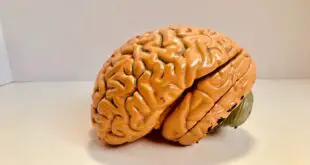Sneezing may be an inconspicuous phenomenon, but it doesn’t happen without reason. A sneeze is caused by a build-up of pressure in the chest that needs to be released, usually through the nose. If you have ever experienced difficulty breathing or have felt unwell in any way before sneezing, seek immediate medical consultation, as these symptoms may indicate a more serious condition.
Does your heart stop when you sneeze? It’s a commonly held belief that you can stop your heart when you sneeze. In fact, the idea is so common that there’s even a German word for it: “schnupfenkardiophobie.” But how much of this is true? Does your heart stop when you sneeze?
If we’re talking about a “stop,” as in a literal stopping of the heart and all cardiac function, then no. This phenomenon has never been documented. However, it is possible to experience arrhythmia (irregular heartbeat) during a sneeze. A published study found that 10 participants experienced this irregularity during a sneeze, but none went into full cardiac arrest.
So why do people keep asking does your heart stop when you sneeze? It’s likely because of the way the human body reacts to sneezing. Sneezing involves increased blood pressure, which causes a brief drop in blood flow to the brain. That temporary loss of blood flow can cause fainting, making someone feel like their heart has stopped.
Does Your Heart Stop When You Hiccup?
Apart from asking does your heart stop when you sneeze, people also believe a common myth that your heart stops when you hiccup. This is absolutely not true, and it’s been debunked so many times in recent years that it’s pretty much an internet meme at this point. The reason why it’s so persistent, though, is that there really is a connection between hiccups and the heart.
We need to look at the vagus nerve to understand how they’re connected. The vagus nerve is responsible for sending information from the brain to the diaphragm, which controls when and why you hiccup and other organs like your throat, heart, and lungs. It has two branches—the left and right branches—and each branch is responsible for performing different functions.
A study found that people who have had their left vagus nerve severed experience more frequent hiccups than those whose left vagus nerve was intact. This means that your hiccups are tied to a certain degree to what your heart does, but in no way does it mean that one directly causes the other.
Does Your Heart Stop When You Cough?
Contrary to popular belief, the human heart does not stop when you cough. If a person’s heart stopped every time they coughed, they wouldn’t be able to live very long.
While we don’t know exactly why people feel their heart stops when they cough, we have some hypotheses. It could have something to do with the way our bodies are built or the way coughing works (it expels air from our lungs forcefully). It could also be that we feel lightheaded for a second when we cough because the coughing motion causes our blood pressure to drop for a moment.
Unfortunately, there is no real solution to this phenomenon. We don’t yet know enough about it to figure out how to make it stop happening.
What Happens To Your Heart When You Sneeze?
When you sneeze, your breathing intensifies, and your heart rate can increase up to 50% more than it normally would. The cause of this is the contraction of your chest muscles and the resulting expansion of your rib cage; which creates more room for your lungs to fill with air. For some people, this process can be so intense that they hold their breath before sneezing to gain the most benefit from their sneezes.
If you have ever wondered what happens to your heart when you sneeze, you are not alone! There are many theories about why people sneeze. Some think it’s because of an allergic reaction or infection; others believe it’s simply a reflex. While these theories may be true in some cases, there is one scientific explanation for how sneezing works: When we breathe deeply or hold our breath before sneezing, our lungs expand and contract more than usual due to increased pressure inside them.
Why Do They Say ‘God Bless You’ When You Sneeze?
Sneezing is a phenomenon that everyone experiences, making it ripe for myths and superstitions. One of the most prevalent is the custom of saying “God bless you” or “Bless you” if you don’t want to get into specifics with your deity.
There are a few different theories on why we say this to people who sneeze. The most common one is that it started during the Black Plague when sneezing was one of the first symptoms of the disease. People were afraid if they didn’t say something to protect themselves from getting sick (or just wished someone else well while they were sick), they’d be struck down with the plague too.
Another theory is that sneezing can cause your heart to stop momentarily; so saying “bless you” was a way to wish someone well after their heart had stopped beating for some time. This theory doesn’t hold up, though—it isn’t especially likely for any shock, including sneezing, to cause your heart to cease functioning for long enough to cause any real damage.
How Long Can Your Heart Stop Before You Pass Out?
A heartbeat is a muscular contraction of the heart, which pumps blood throughout the body. Your heart can stop for a few seconds and restart on its own or stop for longer periods if it is not treated immediately.
It is important to know what happens to your body when your heart stops and what actions you need to take to treat it.
Why Does Your Chest Hurt When You Cough?
When you cough, your chest muscles contract and relax quickly, but the contraction of your chest muscles can cause pain. You may even feel a cramp in your heart or sharp pain under your ribs; this is usually no cause for alarm. You feel pain when you cough because the contraction of your chest muscles can pull on the nerves connected to your ribs and sternum.
Can Congestion Cause Heartaches?
Congestion is a problem that primarily affects the nose and throat, but it can also cause pain in other areas of the body, including the heart.
The most common causes of congestion are allergies, sinus infections, and colds. When you have a congested nose and throat, it makes it difficult to breathe normally; making your heart work harder than usual to deliver oxygen. This puts more strain on the cardiovascular system. It can also lead to increased blood pressure and stress on your respiratory system.
When you have congestion due to allergies or sinus infections, your body releases histamine as part of an immune response to fight off invading allergens or bacteria. Histamine causes inflammation in the body; when this happens in your cardiovascular system or respiratory system, it can lead to pain in those areas.
If you have any symptoms that could indicate heart problems, such as chest pain or discomfort, talk with your doctor right away.
Conclusion
Sneezing does not cause heart attacks. The myth that you can die from shocking yourself out of a sneeze comes from a misinterpretation of data in a study published in 1971. The myth gained traction after it was treated as fact again in an episode of House. But the myth itself is false, and research has proven that you won’t die from sneezing.
You May Like These Articles As Well:
How Long After Drinking Can I Take Ibuprofen? The Answer Below
How Long Do Edibles Stay In Your System? Information About Edibles
 Being Human
Being Human




